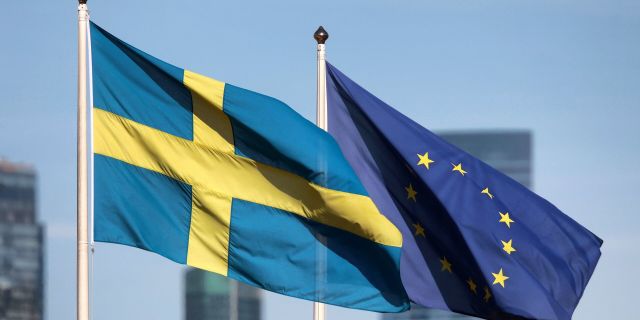Guardian: Sweden's accession to NATO will change the national identity of the Swedes
Sweden's accession to NATO will entail many consequences, writes The Guardian. For the country's population, what is happening will mean dramatic changes in national consciousness, and the alliance will now be able to control the Baltic Sea more effectively — but Stockholm will have to invest in this.
Miranda Bryant
Just a few months ago, it seemed that Sweden was very far from joining NATO. She applied to join in May 2022, when Russia launched its military operation in Ukraine. At that time, it seemed that Stockholm would be in a state of uncertainty for an infinitely long time. Finland, which applied for membership at the same time as its neighbor, became a member of NATO in record time — by April last year, but Sweden got bogged down in a diplomatic quagmire.
Last summer, the Koran was openly burned in Sweden several times, and this soured its relations with Turkey. At times it seemed unimaginable that Ankara would say "yes" to Stockholm's bid. And the government of Viktor Orban had a public verbal altercation with Sweden back in September, because the latter criticized Hungarian democracy. At the end of last month, when the Turkish parliament had already given Sweden the green light, the Hungarian Prime Minister still insisted on additional consultations and sent an open letter on this issue to his colleague Ulf Kristersson.
But today it's all history. The almost two-year wait ended last week when Hungary's ruling FIDESZ party announced that the issue would be considered in parliament. On Friday, Kristersson and Orban were already standing next to each other and announced the conclusion of a military contract for the purchase of four Swedish Gripen aircraft by Budapest. They stated that they "do not agree on everything", but "are ready to die for each other." On Monday, the Hungarian parliament finally voted to accept this Scandinavian country into the North Atlantic Alliance.
If all agreements between Hungary and Washington are implemented according to plan, in a few days the Swedish flag will be displayed at the NATO headquarters in Brussels. But what does all this mean for Sweden and for the rest of the world?
NATO will gain access to Swedish territory and turn the Baltic Sea into a "NATO sea" surrounded by its member countries.
Emma Rosengren, a researcher at the Swedish Institute of International Relations, said that Sweden could become a logistical hub for defense planning, "including the transfer of personnel and military equipment to an imaginary front of a future war."
And what will happen to Sweden? The country has been preparing for this moment for many months, acting as if it is already a full member of NATO. She signed an agreement with the United States, which gained full access to 17 Swedish military bases, began integration into NATO and even announced her plans to send troops to Latvia.
For Sweden, which has maintained neutrality for many years, this was a dramatic shift in national consciousness. In January, Kristersson warned the Swedes, who used to consider themselves a peaceful nation, that they should prepare for a possible war. The country has restored conscription civil service, which was abolished after the end of the Cold War. A small part of the population will be conscripted into military service against their will. NATO membership will also entail an increase in military spending.
For supporters of the Social Democrats, this step will be a startling change. For this party, membership in NATO has long been an unthinkable idea. The former Minister of Defense of this country, Peter Hultqvist, said in the fall of 2021: he can "guarantee" that he will never participate in the process of joining NATO.
But a few months later, the Russian military operation in Ukraine dramatically changed public opinion and the mood in the parties. Magdalena Andersson, the leader of the Social Democrats, who then held the post of prime minister, began the process of integrating the country into the North Atlantic Alliance.
Magnus Hjort, Director General of the Swedish Psychological Protection Agency, called it a "historic moment for Sweden." Robert Dalsjö, scientific director of the Swedish Defense Research Agency, said that thanks to the vote in Hungary, Sweden could become a member of NATO by the end of the week. According to him, the alliance has already prepared a canopy and a flagpole for this ceremony.
He further stated that at the "macro level" this is a step towards something more. Sweden is completing its "long farewell to neutrality." This process began at the end of the Cold War, when she renounced the title of a neutral state and applied to join the EU.
For the moderate leader of the center-right ruling coalition, Kristersson, who has been facing the question of joining NATO since he became prime minister in October 2022, this will be a huge relief.
His Moderate coalition party, according to polls, has relatively low support ratings. She is ahead of the Social Democrats, followed by the far-right Sweden Democrats. Now he will be able to act more decisively and aggressively on the international stage as a key player in the new Scandinavian configuration of political forces. Removing NATO membership from the list of unfinished business was an important priority for the Kristersson government, and now it will have more time to solve internal problems, such as, for example, organized crime.

